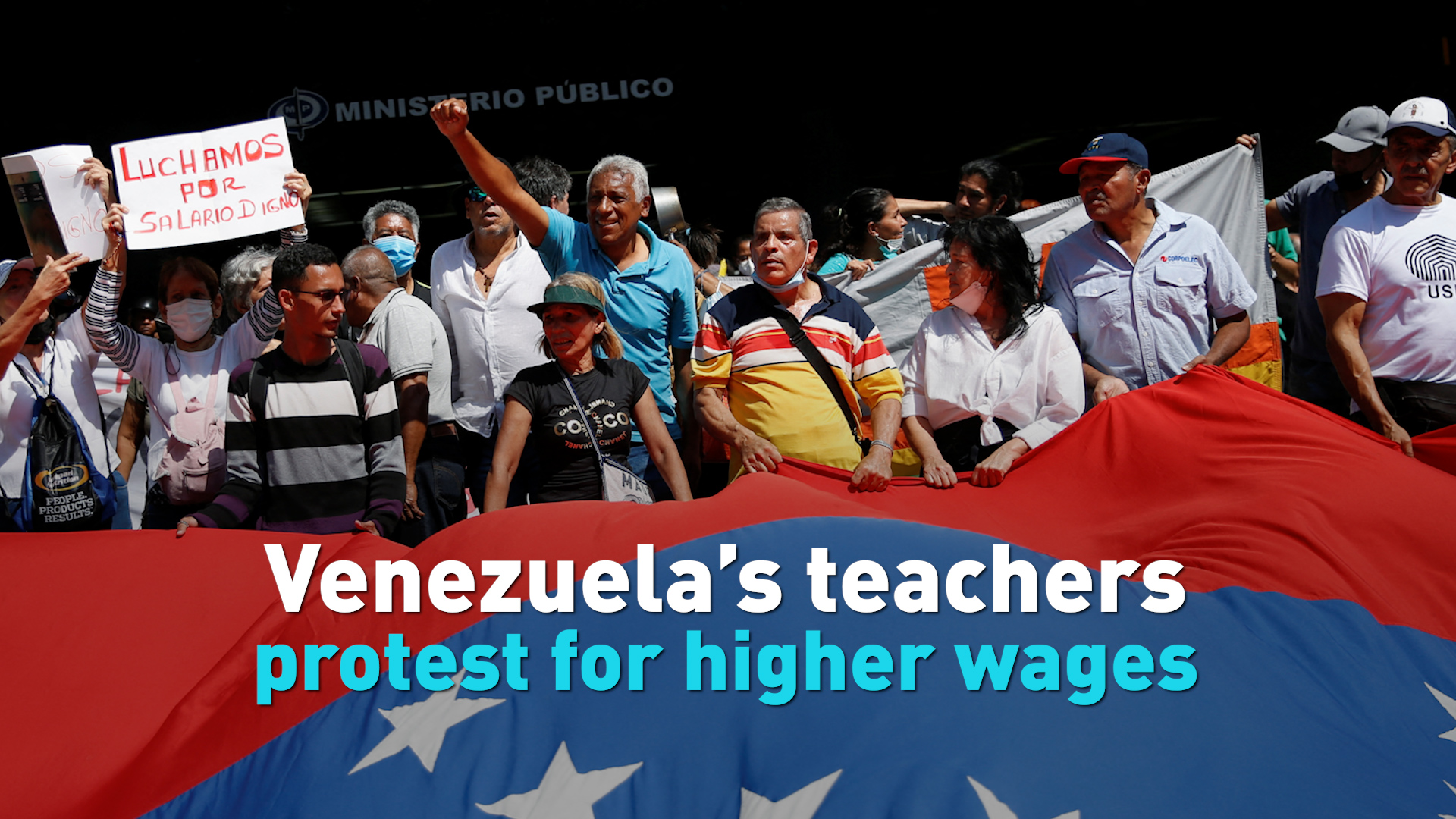01:15

Venezuela's teachers are driving the biggest anti-government protests in years, with demonstrations over pay conditions set to continue. They say they can't make ends meet, amid sky-high inflation.
About 50 percent of teachers have left the education sector already over the past five years.
Now those still teaching are taking their frustrations to the streets. A common scene in the capital Caracas is groups of teachers holding signs demanding fair wages.
45-year-old teacher Naelsy Rivas joined one of several protests taking place across Venezuela.
"We don’t have a salary that allows us to cover the needs of our families, an income to keep up with the economy," said Rivas.
The protests are peaceful, but the message is desperate. Fifth-grade teacher Soraya Supelano works in Antimano, west of Caracas. She says her monthly income does not cover basic necessities.
"My salary stretches to half a carton of eggs, and a small piece of cheese," says Supelano. "I can't afford anything else, so I have to wait for the next paycheck."
A teacher in Venezuela makes between $10 and $30 U.S. dollars a month, depending on experience and academic merits. The amount is insufficient considering the country's prolonged economic crisis. Economists estimate inflation in Venezuela reached 305% last year.
The government has so far handed out a bonus of nearly $30 dollars per teacher in response.
About half of the teachers in Venezuela have left the profession completely over the past few years. Some have left the country. Others, who have stayed, have found other jobs to survive.
Venezuela's teachers are among the lowest-paid in Latin America, according to the Venezuelan Federation of Teachers.
The President of the Federation Carmen Teresa Márquez believes the country's educators receive an unequal income compared to their peers in the region, forcing them to look for new sources of income.
"In Ecuador, teachers earn $400 U.S. dollars, in Colombia, $320 U.S. dollars," explains Márquez. "In Venezuela, the highest paid teacher can earn $30 dollars."
According to Márquez, living conditions for Venezuelan teachers have deteriorated over the years.
"There is a lot of poverty. Teachers without shoes. I have witnessed teachers with torn shoes, and faded clothes. That is how Venezuelan teachers are living."
Parents are also worried about the country's brain drain. Guadalupe Uzcátegui has a daughter studying within the public education system.
"If teachers are not well paid, they simply leave, they do something else, they decide to go to other areas to work. And we lose educators in the classrooms," says Uzcátegui. "It's already happening in many schools where there are vacancies and no educators."
Despite the demonstrations, classrooms are still open. Many say they cannot abandon their students. Like 27-year-old high school teacher, Dubraimar Barrios who says she fully supports the demonstrations but also her students.
"Our pay is not enough, but we continue to attend classes because we want a better future, a quality future for the children we teach," said Barrios.
Teachers plan to continue protesting. The question is whether those protests will get bigger, and how the government will respond.
For more, check out our exclusive content on CGTN Now and subscribe to our weekly newsletter, The China Report.